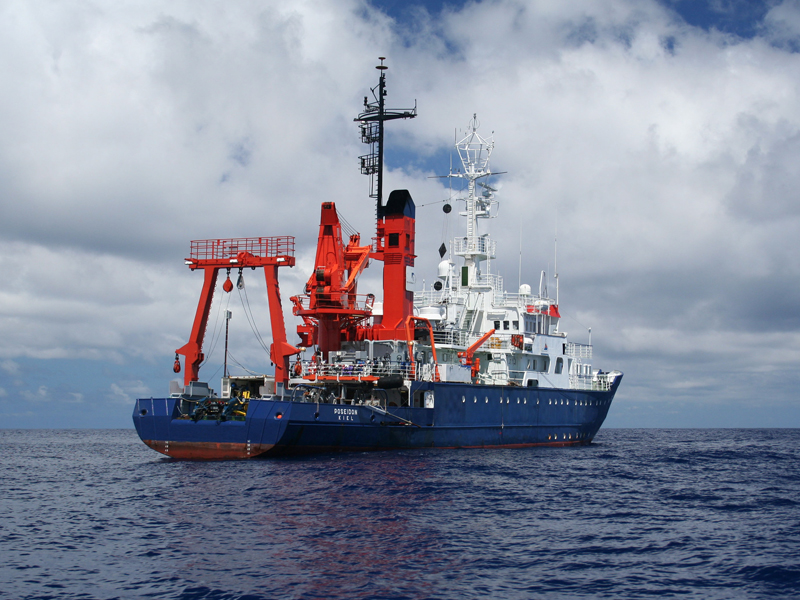POSEIDON POS532
- Area:
- Cape Verde Islands
- Time:
-
04.02.2019 - 24.02.2019
- Institution:
- GEOMAR
- Chief scientist:
- Henk-Jan T. Hoving
We propose to test the hypothesis that large gelatinous macrozooplankton (e.g. tunicates, hydrozoans) are a significant carbon storage in midwater, and a vector for carbon from midwater to the ocean floor in Cape Verde. To test this hypothesis we will 1) study the distribution, diversity and abundance of gelatinous organisms in the epi-, meso-, and bathypelagic zone, 2) study their role in transporting carbon through the pelagic foodweb to the seafloor and 3) investigate their behavior and associations. We will work in the coastal deep sea off Santo Antão and Fogo as well as in the open ocean at the time series station CVOO and an eddy. A manned submersible will be used for mesopelagic surveys, to document the behaviour and associations of deep-sea organisms and to collect living specimens. We will perform pelagic video transects, discrete net sampling, and eDNA sampling down to 3000 m. To quantify the carbon flux of pelagic foodfalls, we will do spatial and temporal seafloor surveys.



